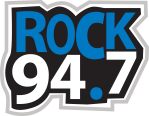STEVENS POINT, WI (WSAU) -- Lawmakers in Washington are expected to approve a sweeping $2 trillion economic relief bill for Americans and small businesses designed to prop up the economy as the Coronavirus continues to put things on hold.
Todd Kuckkahn, Executive Director of the Portage County Business Council, says he's happy to see that the bill will impact multiple sectors of the economy. "Every aspect of the economy is being impacted by the virus. People are losing jobs, kids who rely on schools for food are looking for [their next meal], businesses are closing. There are some serious things going on in our economy."
In addition to the thousands of dollars in direct payments each taxpayer can expect to receive, the bill contains millions in help for small businesses designed to help those that have been closed due to government mandates. He expects many of those dollars to come through the Small Business Administration, though details remain fluid until the bill is signed by President Trump.
Once that happens Kuckkahn and others in the Stevens Point area will make sure businesses have access to all of those resources. "We have an Economic Recovery Committee that's been working on getting resources centralized and looking at what we can do. It's all hands on deck from chambers like ourselves, economic development organizations, all trying to figure out any simple or complicated way we can help our businesses."
He says the Central Wisconsin Economic Development Fund may be able to provide some relief to businesses, but he knows that more will be needed. "Our Holiday Inn recently laid off about 140 people temporarily. I don't want to suggest the sky is falling, but there are some critical things happening."
Kuckkahn says he has two conference calls scheduled for Friday to go over details of the package and how it will benefit the region. "Everybody's pouring through them, trying to figure out what to do, how to do, and how quickly we can do it. The Government wants the money to get into people's hands as soon as possible."
As for what residents should do when the money does hit their bank account, he says without question take care of yourself first, and try to spend some of it locally if you can. "Get food on the table, make sure you take care of your housing, [but then] inject it back into the community so we can keep that money flowing."






